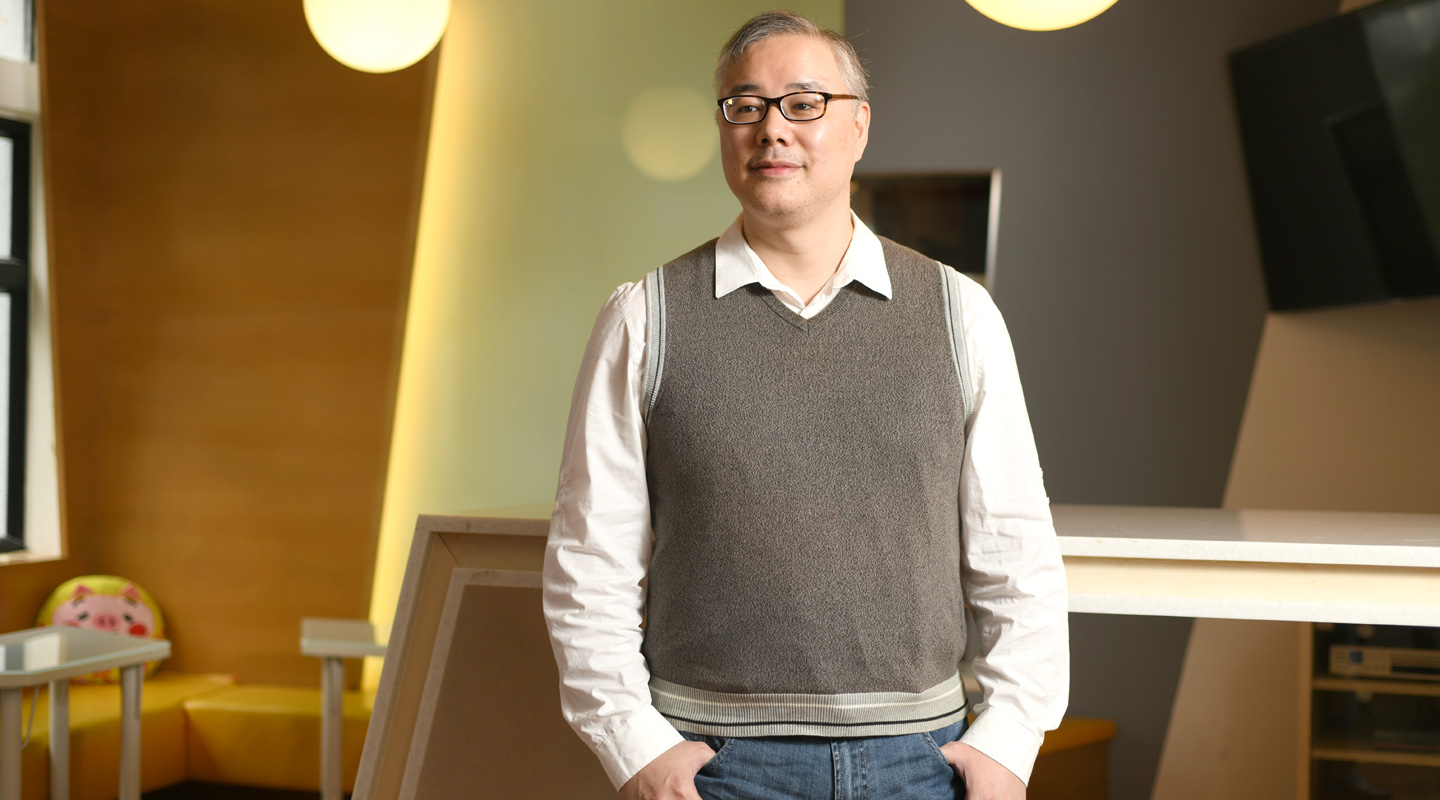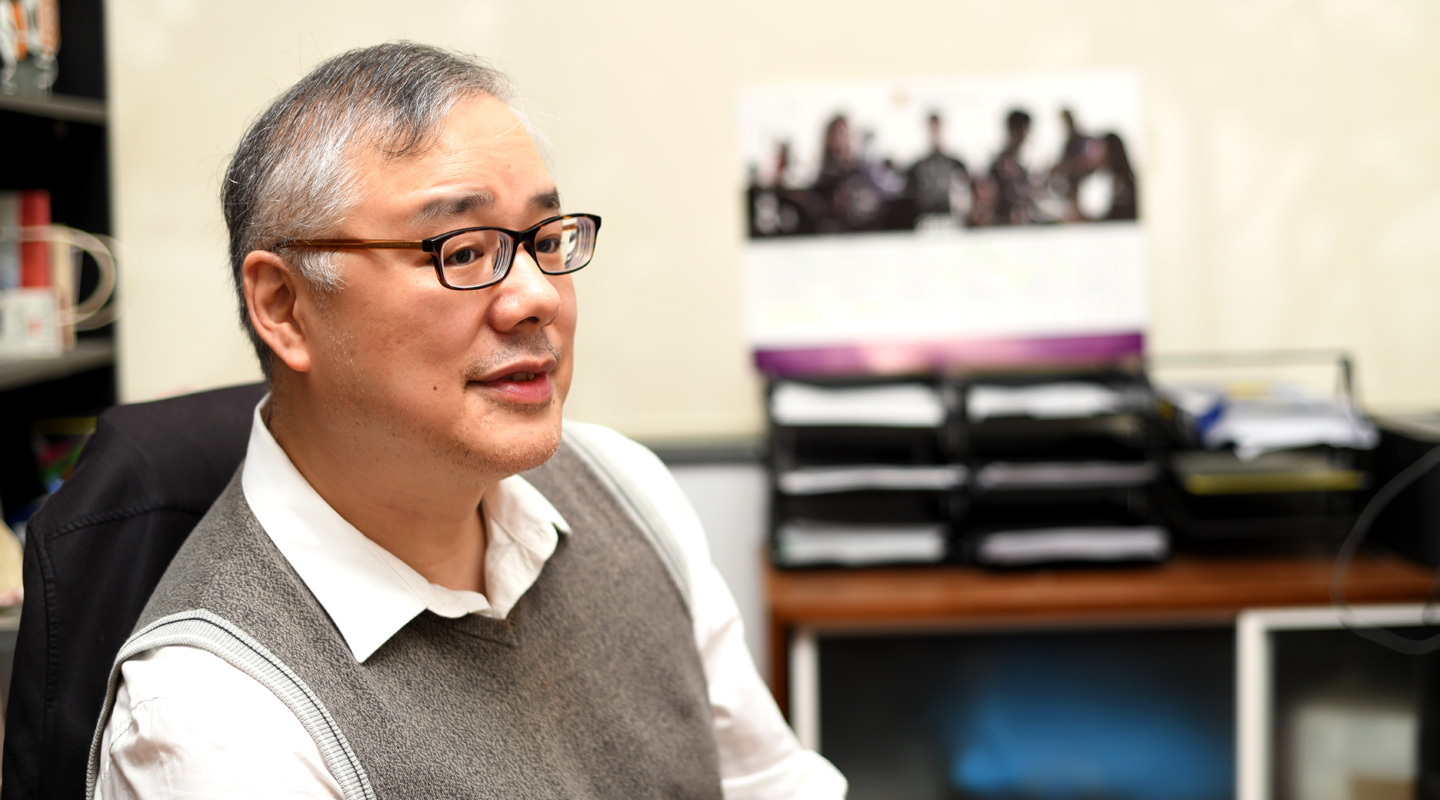Prof. Michael Chan on New Media

Prof. Michael Chan
Born and raised in the UK by Hong Kong emigrant parents, Professor Chan came to Hong Kong working as an editor first, then studying for a PhD in journalism at CUHK and finally joining the School of Journalism and Communication. He talked to the Newsletter on his parents’ home which he calls home now and what the new media mean to our lives and the study of communication.
What made you come to Hong Kong in the first place?
Fate. As a fresh graduate in London, UK, I had no definite plan of what to do next in my life. I was then offered a job opportunity in Japan. So I spent the next five years in Japan and ended up working for a Japanese Internet startup. That’s when I got interested in the Internet. I came to Hong Kong in 2001 and worked for the publisher Longman.
Did you experience culture shock when you first arrived in Hong Kong?
Not much. I belong to the generation of overseas Chinese who grew up with TVB drama series and Canto-pop. That was the golden age of Hong Kong entertainment and popular culture which found a world market in the Chinese diaspora and was an integral part of my family life. That kept me connected to the local culture and language before I arrived here.
What made you pursue a doctoral degree in journalism at CUHK?
While teaching for the City University of Hong Kong, I began part-time studies on the media, first a master’s and then an MPhil. So a PhD was the logical conclusion to that. Although I had no plan at the outset to embark on an academic career, my interest in teaching and research in media studies was gradually formed due in no small part to the excellent professors I met along the way.
How do you find your students?
I found my undergraduate students hardworking and eager to learn. They have their own opinions and are not afraid to express them, a quality not always found in students from Asian countries. I’ve now taught at CUHK for six years. I must say it’s a pleasure to teach such intelligent and motivated students.

Human interactions are often conducted through a screen these days. Is that a good thing?
Whether the Internet or the smart phone is a blessing or a bane is an ongoing debate. Regardless, I think it’s a reality we have to live with. Technology keeps us connected to one another and in many cases makes our lives easier to order and manipulate. The flip side is, we may get information overload or overwhelmed by engaging socially. It all comes down to how we set to manage our screen time.
Are the social media culpable for the current polarization in politics?
People and their views have always been polarized. Social media allow people with similar views to cluster together and so make the polarization more visible than before. Technology is not culpable of anything. It only facilitates and engenders existing divisions.
The drop in literacy, especially among the young, sometimes attract lamentation. But ubiquitous texting means we actually write more. Why the paradox?
The notion of literacy is always changing. Most of us do not write but type or press buttons now. So the act of writing itself changes, too. Similarly, the notion of digital literacy is amorphous. It means not only that one can use a device to send and receive messages but also that one should be able to identify valuable information as opposed to, say, fake news and understand what privacy matters are in issue.
T.C.
This article was originally published in No. 536, Newsletter in Apr 2019.

